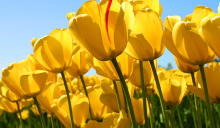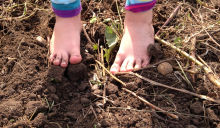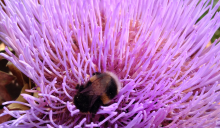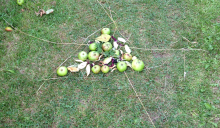The North London Forest School Nursery



Parents can download here The NLFSN Curriculum Statement (pdf format). Below are some examples of how we will cover the curriculum.
Areas of learning:
PERSONAL, SOCIAL AND EMOTIONAL DEVELOPMENT
Making Relationships - the children will play and learn together, negotiating plans and sharing their discoveries. The will play ring games and work in groups to build dens, cook in the mud kitchen, engage in shared imaginative play, act out stories and familiar scenarios and much more.
The children will share their thoughts and ideas during circle times, learning to listen to each other and finding out about each other.
They will gradually learn to look after each other, to take turns and share resources.
Self-confidence and self-awareness - the children will lead their own learning and play and their interests will be included in the planning stage. With open ended resources, there is no right or wrong. The children will build self-esteem naturally as they achieve and begin to set their own challenges. Through discussions and group times, the children will be will be given opportunities to talk about what they have been doing and what they would like to do next.
Managing feelings and behaviour - being outdoors in a natural environment has a calming effect and children feel more relaxed and happy. They have space and freedom to express their emotions. Appropriate behaviour and boundaries will be clear and understandable for children.
The children will be encouraged to express their likes and dislikes and they will gradually start to understand about their own needs and feelings and how others might feel. Adults will act as a role model, giving children the language describe their feelings. Through group time stories, acting out with puppets, working and playing together, children will gain skills of managing feelings and behaviour.
COMMUNCATION AND LANGUAGE
Listening and Attention - children will be encouraged to tune into sounds of the natural world, whether it be bird noises, the wind or adults and children talking. They will be playing games such as ‘Guess the sound’, ‘Copy the sound’, ‘Loud and quiet’ and many more. We will be listening to each other singing and reciting favourite rhymes during group times.
Understanding - children and adults will have meaningful interactions and conversation about the things that interest the child. We will be playing games such ‘Simon says’, ‘What’s the time Mr. Wolf?’, ‘Head, shoulders, knees and toes’ etc. whereby children follow adult’s or each other’s instructions.
Speaking - adults will give children time to talk. The stimulating environment will give them plenty to talk about. The children will be engaging in telling their favourite stories for example, talking about what they are doing as they play, make, investigate etc. The adults will be supporting the children to learn new words and extend upon their sentences.
PHYSICAL DEVELOPMENT
Moving and handling - walking, running, rolling, jumping over rough terrain, slopes and logs, supports balance and coordination. Swinging from branches, digging and climbing supports upper body strength. Building stamina as they go on long walks.
Collecting natural materials, using tools such as hand held drills, small saws with adult support and supervision in order to make for instance a conker mobile, wood slice medallions, wooden beads, spider webs with string and so much more.
Developing hand and eye coordination and fine manipulative skills through creating natural pictures, stick people, mud faces, clay models, connecting lengths with of wood with string/rope and so forth.
Health and self -care - dressing for the outdoors in different weather and learning how to keep themselves safe. The children will learn how to risk assess such as road safety, not touch thorns, poisonous plants, stinging nettles, fire safety and testing out the strength of a branch.
They will learn about the effects of activity on their body, express their needs such as becoming tired, hungry, needing assistance with toileting and gradually learning to do things for themselves, dressing, undressing, toileting, washing hands etc.
MATHEMATICS
Number - Children have a better understanding of number when their experiences are hands on and practical. Counting natural found objects 1:1 correspondence, five children need five cups of water to have one each, 2 green leaves and 1 brown leaf makes 3 altogether, I heard that bird call three times, how can we share 1 apple between 2 children and so forth.
Space shape and measure - measuring lengths of sticks, who has the longest? Measuring the circumference of trees, how many children need to hold hands to surround the tree trunk? Measuring the passing of time, looking at shadows. Observing patterns in natural objects leaves, pine cones, creating arrangements with natural objects, making clay models, building dens and thinking about size and shape.
LITERACY
Reading - listening to and acting out stories. Singing songs and rhymes. Playing rhyming and alliteration games, ‘I spy with my little eye’ games, making up stories, creating story boards/scenes with natural objects, looking up information in factual books.
Writing - mark making in the mud. Developing own stories and characters. Mark making with charcoal, chalk, with clay, in the snow and so forth. Mark making with natural materials, scribing on pebbles, slices of wood, conkers, making arrangements with such resources to form letters, write names and much more.
Making new paper with recycled paper, making inks from natural ingredients such as edible berries, crushed leaves, flower petals, crushed charcoal, using feathers and sticks to write with.
UNDERSTANDING OF THE WORLD
People and communities - learning about their local community and environment. Giving children opportunities to get to know and discuss what they like and dislike. Understanding simple maps.
The World - the children will use their observation skills outdoors. Seasons, growing, changing and decay can be observed. Care and concern for living things, respect for their natural environment will be promoted.
Technology - binoculars, hand held microscopes, cameras and magnifying glasses will be used to support observations and recording. Pulleys can be built simply to help lift heavy logs.
EXPRESSIVE ARTS AND DESIGN
Exploring and using media and materials - using natural pigments to paint. Using natural materials such as clay, mud, snow, ice, sticks, leaves, petals, seeds etc. to create pictures and sculptures.
Making music with sticks and logs. Recording bird songs, creating own body percussion and voice sounds.
Being Imaginative - the resources in the outdoors are open ended. What can a stick be? What can a log be? What can a mole mound be? There is no limit to using imaginative skills to recreate familiar stories, scenarios and experiences.
Characteristics of effective learning
-
Playing and exploring, finding out and exploring, using all their senses to understand the natural world and the changes that take place.
-
Playing with what they know by pretending natural objects are things from their experience
-
Willing to have a go, lots of opportunities to risk take and learn how to risk manage.
-
Active learning, self-chosen activities promote true involvement, focus and concentration.
-
Keeping trying. Promoting resilience, falling over, getting muddy, re-building the stick house blown down by the wind and many more.
-
Enjoying achieving what they set out to do. There is no right or wrong way to play with the open-ended resources.
-
Creating and critical thinking, having their own ideas. Children will develop their own games and play and be involved in planning their own activities.
-
Making links between what is known to them and what they discover, e.g. water is liquid, what is happening to the snow when we hold it in our hand, testing their own ideas by experimenting, can I fix a broken stick?
-
Problem solving opportunities for real life problems. Stop the stream flowing this direction? How to stop the rain getting into our den?
Curriculum


The ways in which the child engages with other people and their environment – playing, and exploring, active learning and creating and thinking critically – underpin learning and development across all areas and support the child to remain an effective and motivated learner.
The prime areas of learning begin to develop quickly in response to relationships and experiences and run through and support learning in all other areas. The prime areas of learning are:
-
Personal, Social and Emotional Development
-
Communication and Language
-
Physical Development
The specific areas of learning include essential skills and knowledge. They grow out of the prime areas and provide important contexts for learning. The specific areas of learning are:
-
Literacy
-
Mathematics
-
Understanding of the World
-
Expressive Arts and Design
Early Years Foundation Stage and Development Matters
Taken from the 'Development Matters' guidance.




